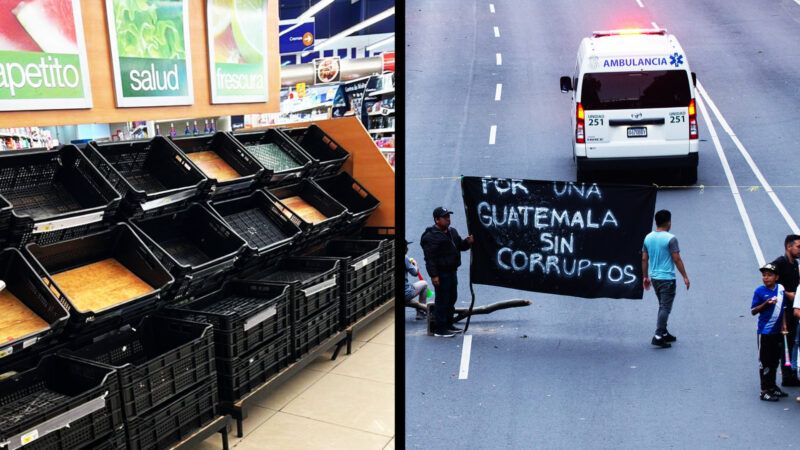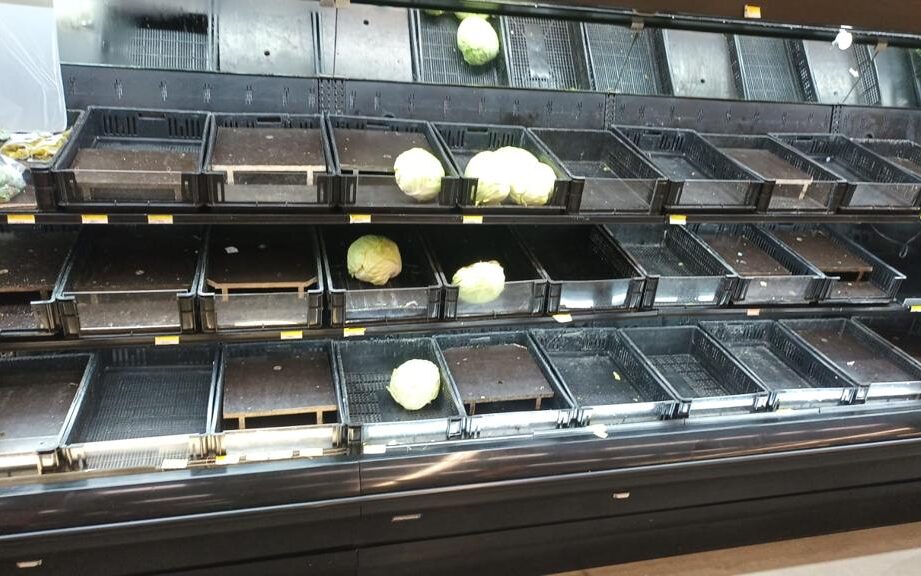In Guatemala, Protests Have Brought Economic Life to a Halt
Few doubt the right of Guatemalans to protest. The challenge arises when protests exact a heavy toll on the well-being of its citizens.

Millions of bananas are rotting in containers across Guatemala as the region's largest economy grinds to a halt. Over the past 16 days, protests have left millions of Guatemalans confined to their homes, while the country runs out of food, fuel, and water.
The nationwide protests seek the resignation of Attorney General Consuelo Porras and other public authorities who are accused of undermining democracy and attempting to prevent President-elect Bernardo Arévalo, who ran on an anti-corruption platform, from taking office in January.
The turmoil began in 2022, when the Public Ministry launched an investigation against Movimiento Semilla, Arévalo's party, alleging that it used fraudulent signatures to register the party. Despite intensified scrutiny, Arévalo secured victory in the second round of the August election this year with 58 percent of the votes, although only 45 percent of registered voters participated.
In September, the attorney general's office raided the Supreme Electoral Tribunal's office and seized the electoral records, which have been under examination due to reported "irregularities" during the election process. In response, Arévalo accused Porras of staging a coup d'etat and called on his supporters to take to the streets.
The result has been over 120 roadblocks in 19 of the 22 departments of Guatemala, cutting access to the country's main roads, ports, airports, and borders. Without being able to move, Guatemalans can't go to work and businesses have had no other option than to close their doors. The few establishments that have managed to stay open have been threatened by demonstrators who demand they show solidarity with the movement or else.
According to the Guatemalan Chamber of Commerce, approximately 70 percent of the country's restaurants have closed during these two weeks, four out of five hotel reservations have been canceled, and more than 7,000 containers remain stuck at the ports.
"Road blockades are especially harmful in places like Guatemala, where there are no alternative forms of transportation to the vehicles that travel on the roads," explains Daniel Fernández, professor of economics at Universidad Francisco Marroquín.
Supermarket shelves now sit empty, while prices of available goods have skyrocketed. Staple foods have tripled in cost—a pound of potatoes that used to cost $0.50 a week ago, now costs $1.78.

Water delivery trucks—a key source of drinking water in a country with minimal infrastructure—have been unable to reach neighborhoods. This has been exacerbated by demonstrators intentionally disrupting the water supply to sections of Guatemala City.
The blockades have also led to a shortage of both essential supplies, such as medicines and surgical materials, and doctors, putting the lives of patients and health professionals at risk.
"Every day that passes is more and more lost. One more week of this can mean bankruptcy.…I have already lost more than $360,000," says an exporter of bananas in the eastern part of the country. "Last week I lost 15 containers, and this week it will be approximately 25 containers. The approximate losses are $9,000 per container," he adds. With his containers stranded and the produce ripening, he has no other choice than to discard the bananas.
It is a big loss for him as well as his employees. "I have to pay payroll, but we don't have any cash flow without being able to export. All our employees are being suspended because there is no money to pay them."
Guatemala's economy is practically at a standstill, explains José Carlos Ortega, executive director of Instituto de Servicios a la Nación. "The protests have affected many…but who it affects the most are small companies and medium-sized companies with employees and fixed costs. It also affects those who earn on commission or per day worked," he says.
The banana industry is just one of the many industries that are being affected by the blockade. The Guatemalan Chamber of Commerce estimates the economic loss of 11 days of blockades is already in the millions of dollars. Experts at the Guatemalan central bank say the impacts are long-lasting, affecting economic growth, investment, and inflation.
Few doubt the right of Guatemalans to protest. The challenge arises when protests exact a heavy toll on the well-being of its citizens. Ironically, the politicians who sparked the protests are least affected by such movements, leaving ordinary citizens to shoulder the consequences.
In 2015, Guatemala witnessed a different kind of protest: For months, Guatemalans poured onto the streets in opposition to rampant corruption. Families, students, workers, and businessmen, representing a cross-section of Guatemalan society, stood side by side outside the national palace calling for a change.
The protests were successful, leading to the ousting of then-president Otto Pérez Molina and his vice president. The protests were characterized by their peaceful nature, preserving the rights of the average Guatemalan while targeting only the politicians. It was a strikingly different environment from what the people of Guatemala are living through today.
Protest leaders have said that the current blockades will continue indefinitely. While the outcome of the protests remains unclear, one thing is certain: They are not sustainable. What initially began as a movement to safeguard democracy and protect citizens from corruption is now hurting those it sought to protect.


Show Comments (24)